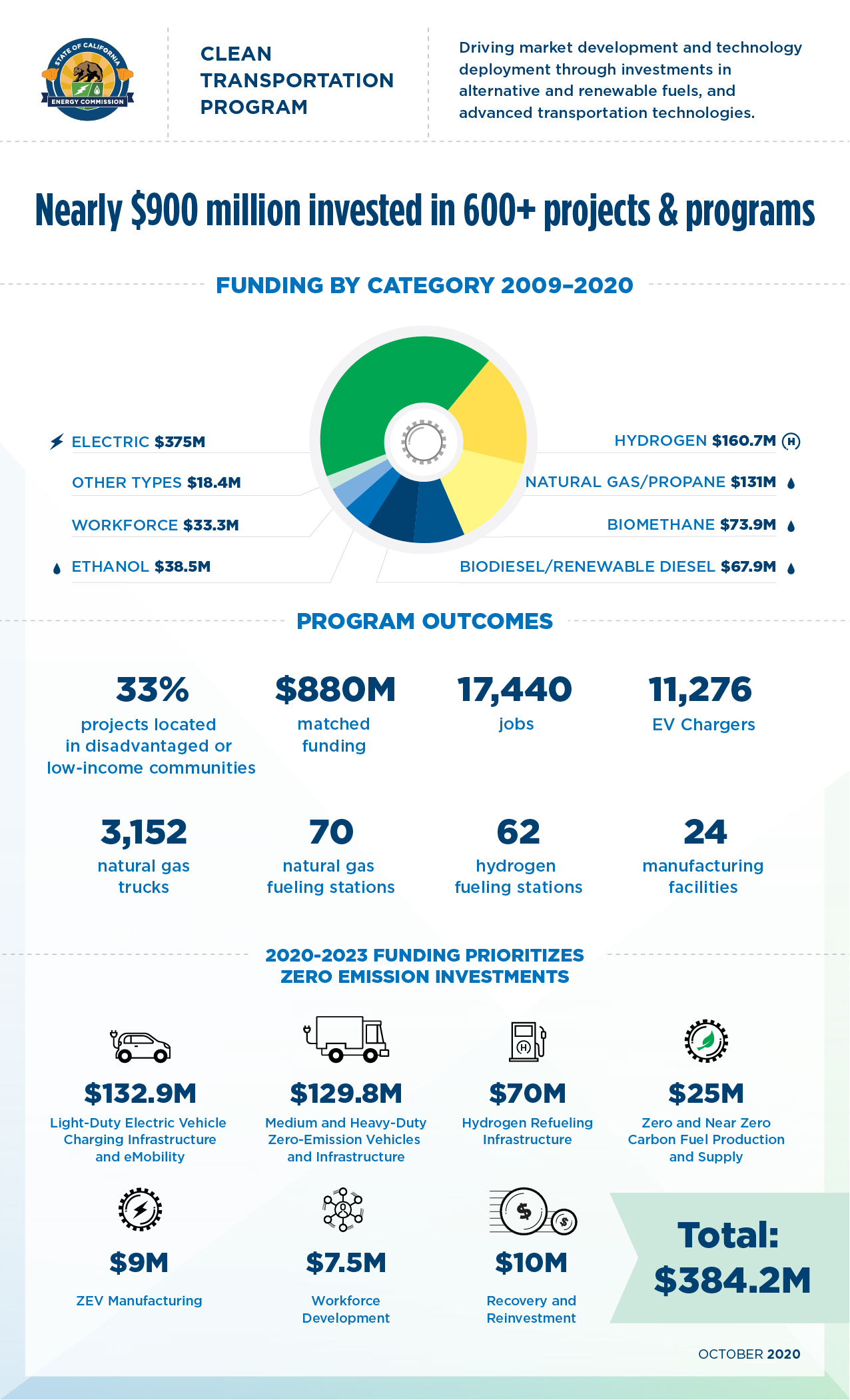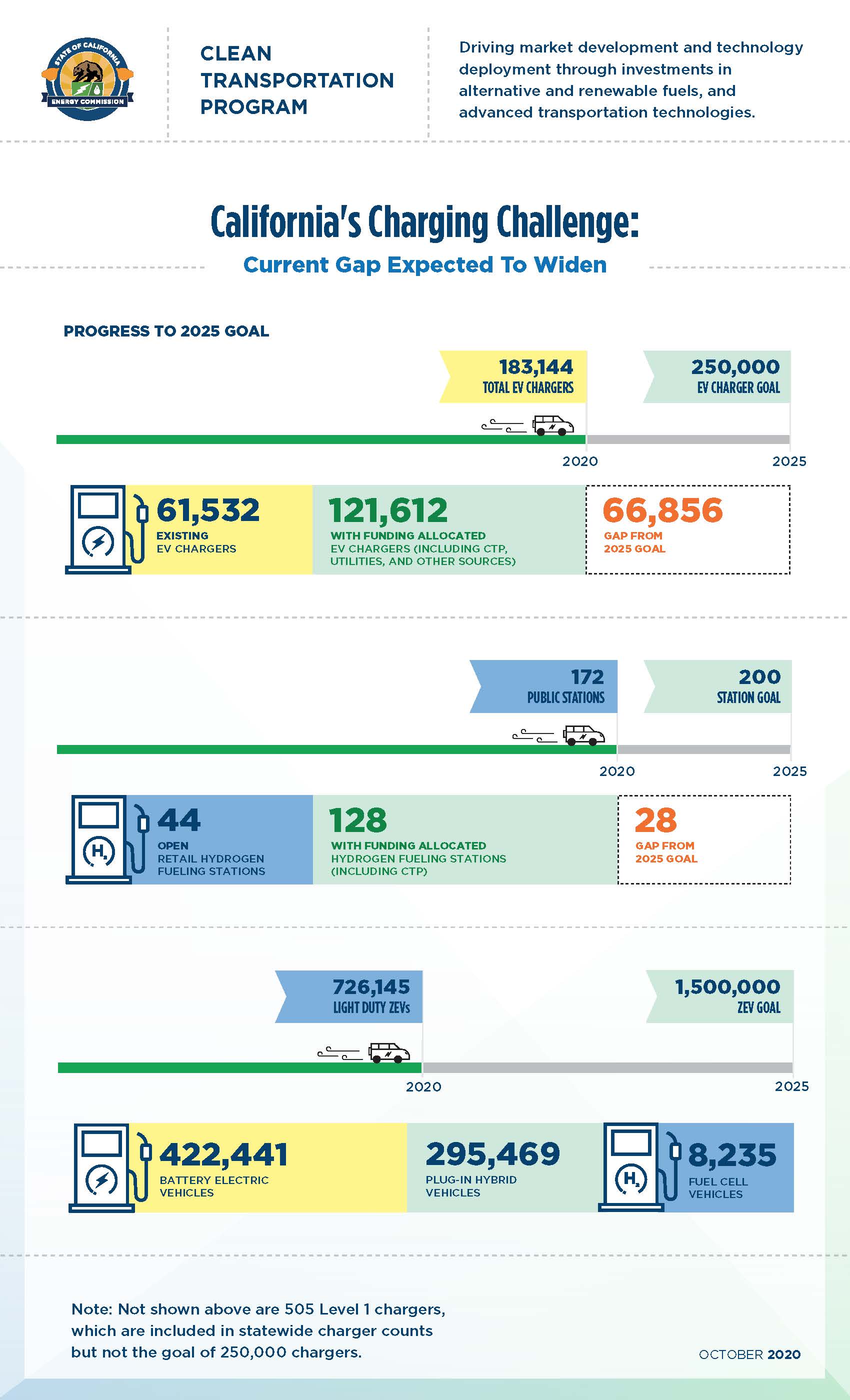Project Planning
Helping Companies Benefit From Renewable Energy Since 2002
The zero-emission transportation market continues to be California’s for the making, delivering jobs and cleaner air especially in communities most in need of relief. The CEC’s Clean Transportation Program (formerly known as the Alternative and Renewable Fuel and Vehicle Technology Program) prioritizes funding for zero-emission vehicle (ZEV) infrastructure, related workforce development and manufacturing.
The 2020 – 2023 approved plan includes:
- $132.9 million for light-duty EV charging infrastructure.
- $129.8 million for medium- and heavy-duty ZEVs and infrastructure.
- $70 million for hydrogen refueling infrastructure.
- $25 million for zero-and near-zero-carbon fuel production and supply.
- $10 million for recovery and reinvestment.
- $9 million for ZEV manufacturing.
- $7.5 million for workforce development.
The funds will become available over the next three years and will be distributed to projects through a mix of competitive funding solicitations and direct funding agreements. The plan was guided by input from newly appointed members of the Clean Transportation Program Advisory Committee, reflecting a broad array of stakeholders representing community-based organizations, social and environmental justice advocates, alternative vehicle technologies, as well as workforce and labor interests.
Investments reflect market potential and technological need and are designed to complement other state programs and policies. In response to engagement with the program advisory committee and the Disadvantaged Communities Advisory Group, the CEC will seek to provide 50 percent of funds from this plan to projects that benefit low-income and disadvantaged communities. Staff will also explore quantifying benefits in new ways that go beyond measuring funding amounts within a given location, to ensure the dollars meaningfully advance equity within the state.
A new category for recovery and investment allocates $10 million to address near-term needs of projects impacted by the economic fallout from COVID-19, including creating opportunities for program funding to be leveraged for federal cost-sharing.
Created by Assembly Bill 118 (Núñez) in 2007 and reauthorized by Assembly Bill 8 (Perea, 2013), the Clean Transportation Program is one of the first transportation-focused funding efforts established to help advance the state’s climate change policies. Now in its 12th year, the program has provided nearly $900 million to projects across the state covering a broad spectrum of alternative fuels and technologies.


